Why Does English Have More Words for Sports Officials Than Any Other Language?
Arbitrating when to say ref, ump, or judge.
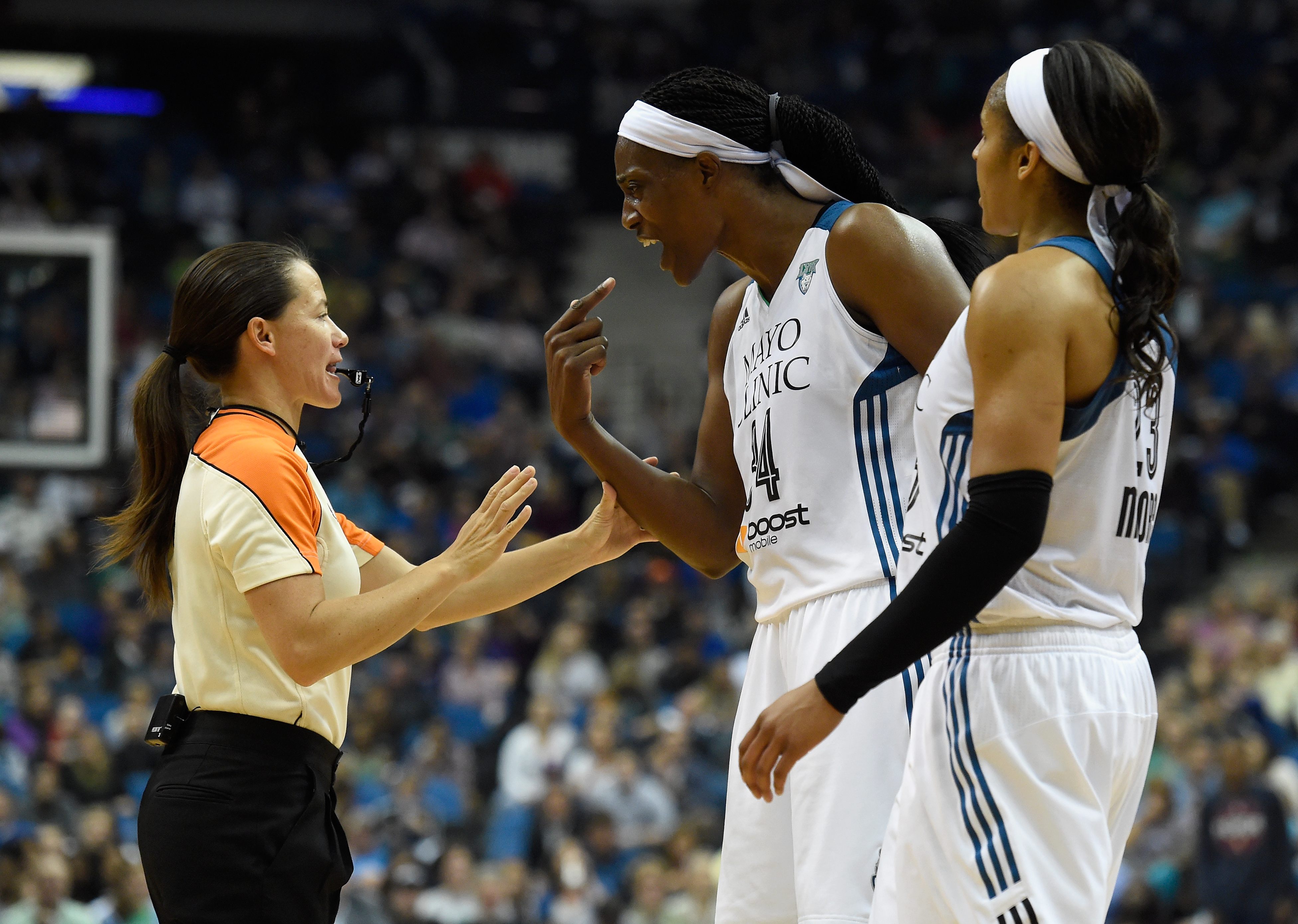
When talking sports, using the wrong terms—referring to a basketball game as a “match,” say, or talking about “points” in baseball—will immediately give you away as a non-aficionado, a person who doesn’t even have a grasp of the basics. But one of the oddest sets of terminology is what to call the uniformed people who make the rule decisions in the course of a sporting event. “This realm of vocabulary is one of the things that can expose you as someone who doesn’t know a ton about a sport, because it’s so unpredictable and so uneven from sport to sport,” says Seth Rosenthal, a writer, producer, and host at the sports publication SB Nation.
Mention the referees at a baseball game or the umpire at a basketball game and it’s clear you know nothing. And that’s perhaps a little unfair because the terminology for sports officials in English makes no sense and has no pattern—or if it does, it’s so riddled with holes as to be pointless. This is not the case in other languages (with one pretty major exception). In English-speaking countries sports officials have a dizzying array of names, without any kind of unifying structure as to the role each plays.
How is it that the United States, England, Australia, and other Anglophone countries have so thoroughly stumbled over what to call our sports officials? Around the world, from France to Japan to Brazil, the naming of sports officials is clear, consistent, straightforward. But in English, it’s more like a trap.
Officials—let’s use this as an umbrella term for everyone involved in rule-enforcing decisions in sport—are not new, though they have evolved. The first Olympics, in 776 B.C., had a 10-man board of officials, the hellanodicae. They were chosen from different places, and it was a position of honor and respect, unlike modern officials, if postgame press conferences are any guide. (They could also whack competitors with sticks for stepping out of line, which is one way to command respect.)

The precise number, configuration, and roles of officials changes depending on the sport and sometimes within a sport based on region and competitive level, but the idea of nonpartisan governing officials is about as old as organized sports themselves. This makes it even stranger that in modern English, there is no agreed-upon pan-sport terminology.
Let’s start with “umpire.” It comes from the Latin non-par, meaning “not equal,” which conveys two meanings. First, the official is not equal to the athlete. To the Greeks, the official ranked above the athlete, though you could argue that it often works the other way today. But it also suggests something like “tiebreaker,” the person who ensures that there is an unequal outcome to the contest—a winner and a loser. From the Latin, it mildly mutated through Old French and Old English before ending up as “umpire.”
On the other hand, “referee” is a term that … comes from Latin and was mildly mutated through Old French and Old English. It’s from the same root as the words “refer” and “reference,” meaning that it represents a person to whom questions are directed for a decision. “Judge” follows the same path, from Latin to Old French to Old English, and doesn’t really have a distinct original meaning; it’s pretty much always meant “to pass judgment.”
So the terms have slightly different base meanings and are not interchangeable, but their use in English does not follow any established pattern between sports. The lead official in a National Basketball Association game is a referee. In Major League Baseball, it’s an umpire. Tennis, American football, and lacrosse all have both referees and a variety of judges.
As a matter of fact, American football has a whopping seven officials: a referee (who’s in charge), an umpire, a down judge, a line judge, a side judge, a back judge, and a field judge. “There are so many cops on the field in a football game,” says Rosenthal. “The NFL [National Football League] is basically just enforcing rules and people happen to be playing a game in the meantime.”
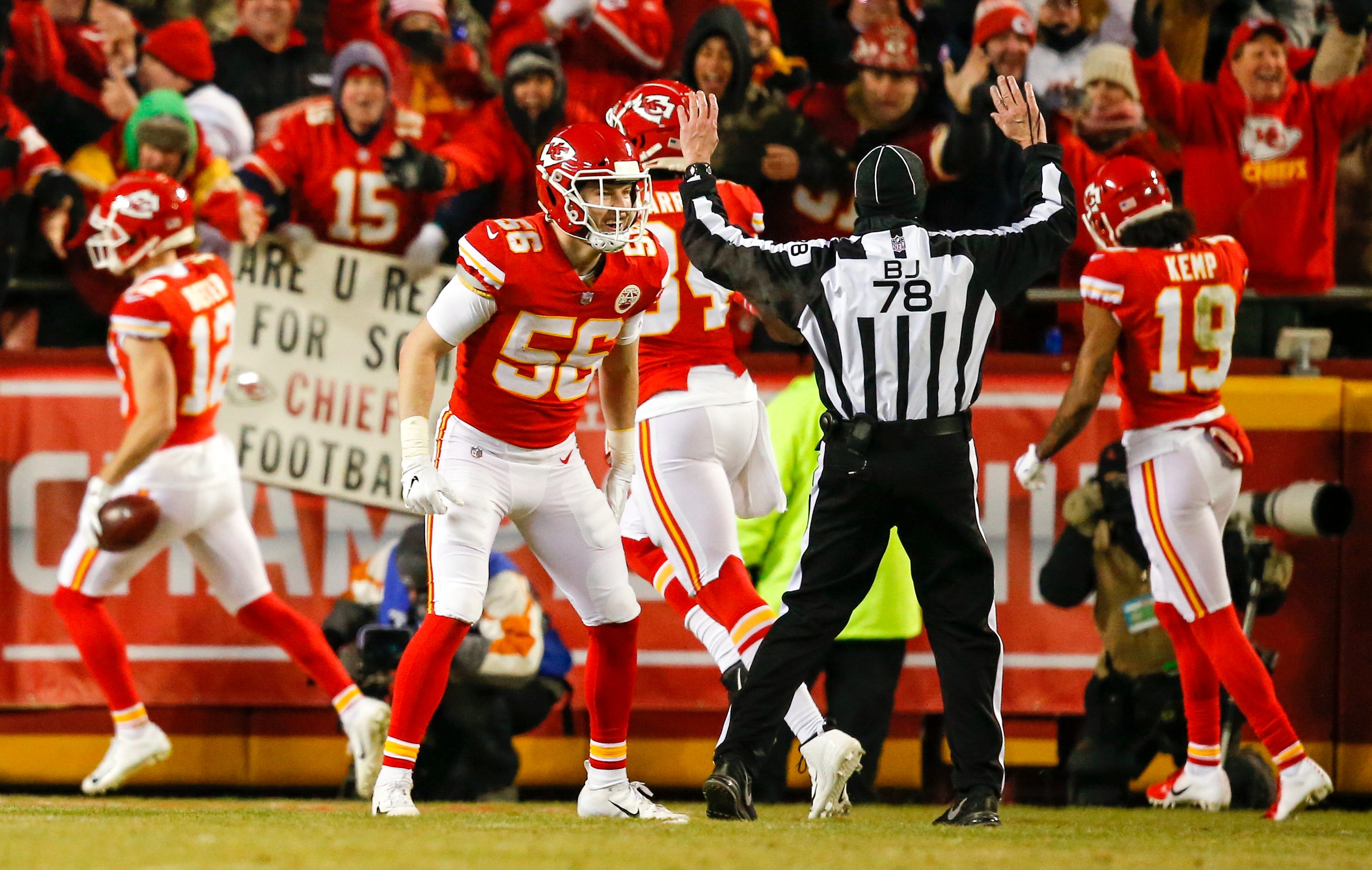
There’s also something in the different natures of these sports. Basketball and soccer, for example, are free-flowing, without, theoretically, the need for direct action or intervention from an official. They’re there to make sure that the game remains that way, by calling fouls and violations. Football, as it’s said, is a “game of inches,” and the variety of officials are needed to make sure progress of the ball is appropriately determined (and to call fouls and assess penalties). Baseball, on the other hand, is less a sport than a turn-based board game, in which almost no action can happen without the judgment of an official—balls and strikes, fair and foul, out and safe.
So yes, sports officials do have different roles on the field, but do they actually need different terms?
Not if you ask most of the rest of the world.
In French, the lead official—the referee, in English—in tennis is le juge-arbitre, while the chair umpire is the arbitre de chaise. In basketball, the role of referee is filled by the arbitre. In soccer? The referee is an arbitre. In baseball? The plate umpire is the arbitre de marbre; the other umpires, stationed at the bases, are, appropriately, all called arbitre de base.
In Japanese, a baseball umpire is (transliterated) a shinpan. In soccer, the referee is a shinpan. You get the idea. Japanese, like French, generally has a single word for a sports official, which can be added to with a descriptor. Head official, side official, chair official—but the word for official doesn’t change.
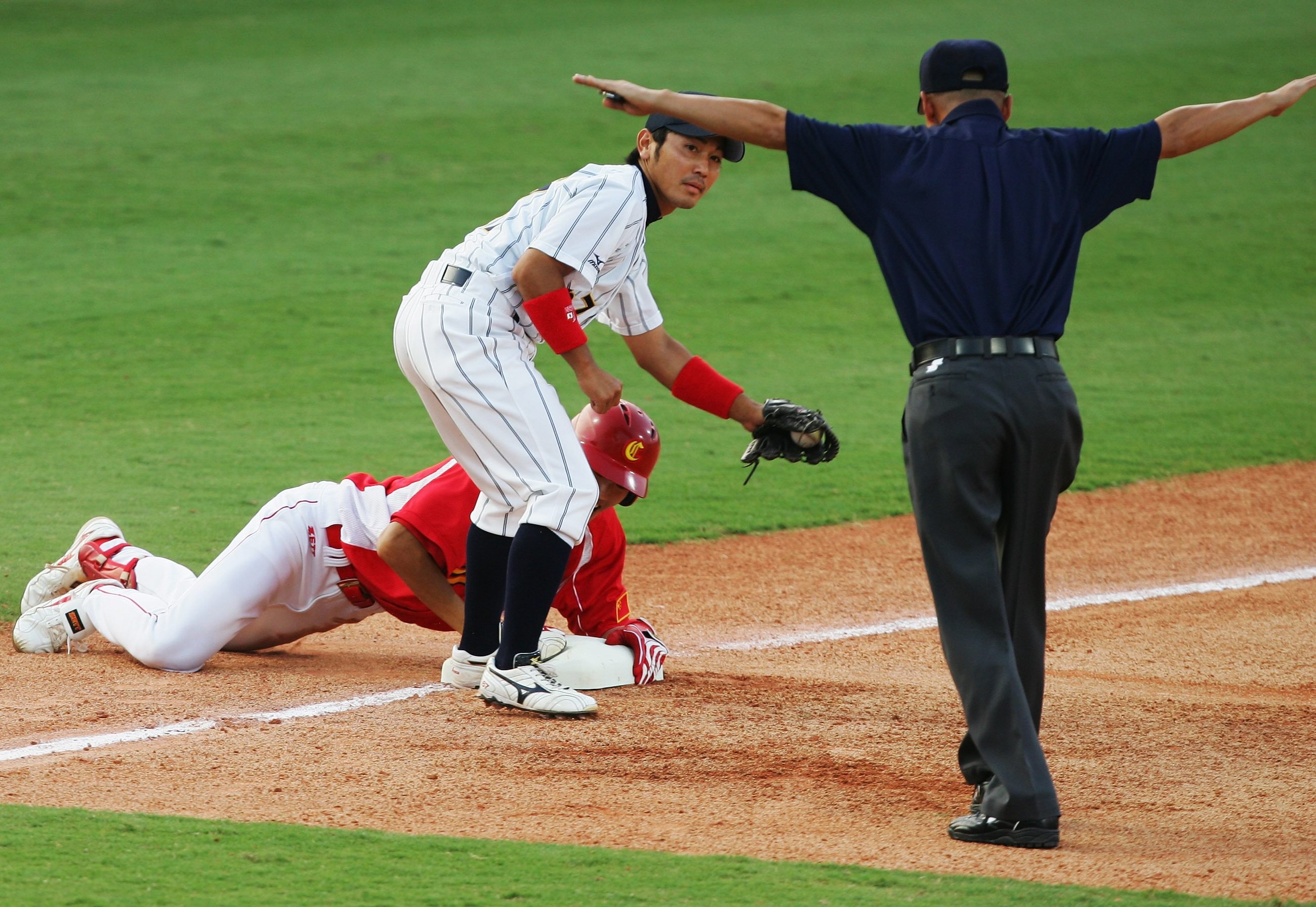
All the major branches of Chinese languages, including Mandarin, Cantonese, and Hakka, have something similar to the Mandarin 裁判—cái pàn in Pinyin—for sports officials. The first character means “judge,” and the second means “to tell apart.” As with French, Mandarin will sometimes add in some descriptors to the basic name for official, as with the assistant referee in soccer: 助理裁判, or zhù lǐ cái pàn.
Arabic also uses one word for sports officials: حكم, or hakam. That’s constant through cricket, baseball, soccer, and tennis.
These are, to be blunt, the sensible languages. A basic pattern of one word for a sports official, perhaps modified to indicate their specific position—base official, head official, chair official—is a reasonable way to do this. English is ridiculous for having so many different ways to talk about sports officials, but it’s not the only language to do this.
Spanish, being a Romance language like French, looks at first like it’ll follow the French rule. In French, the word for official is arbitre; in Spanish, it’s árbitro. Except when it isn’t.
Baseball, which is a very big deal in many Spanish-speaking countries, has árbitro as an umbrella term, but like in English, “umpire” is also used—well, ampáyer, anyway. The home plate umpire is the ampáyer principal, the first and third base umpires are the ampáyeres lineales (line umpires), and the second-base umpire is the ampáyer central.
Soccer, also a big deal, sticks with árbitro. The head official is the árbitro principal, and there are a couple of árbitro asistentes.
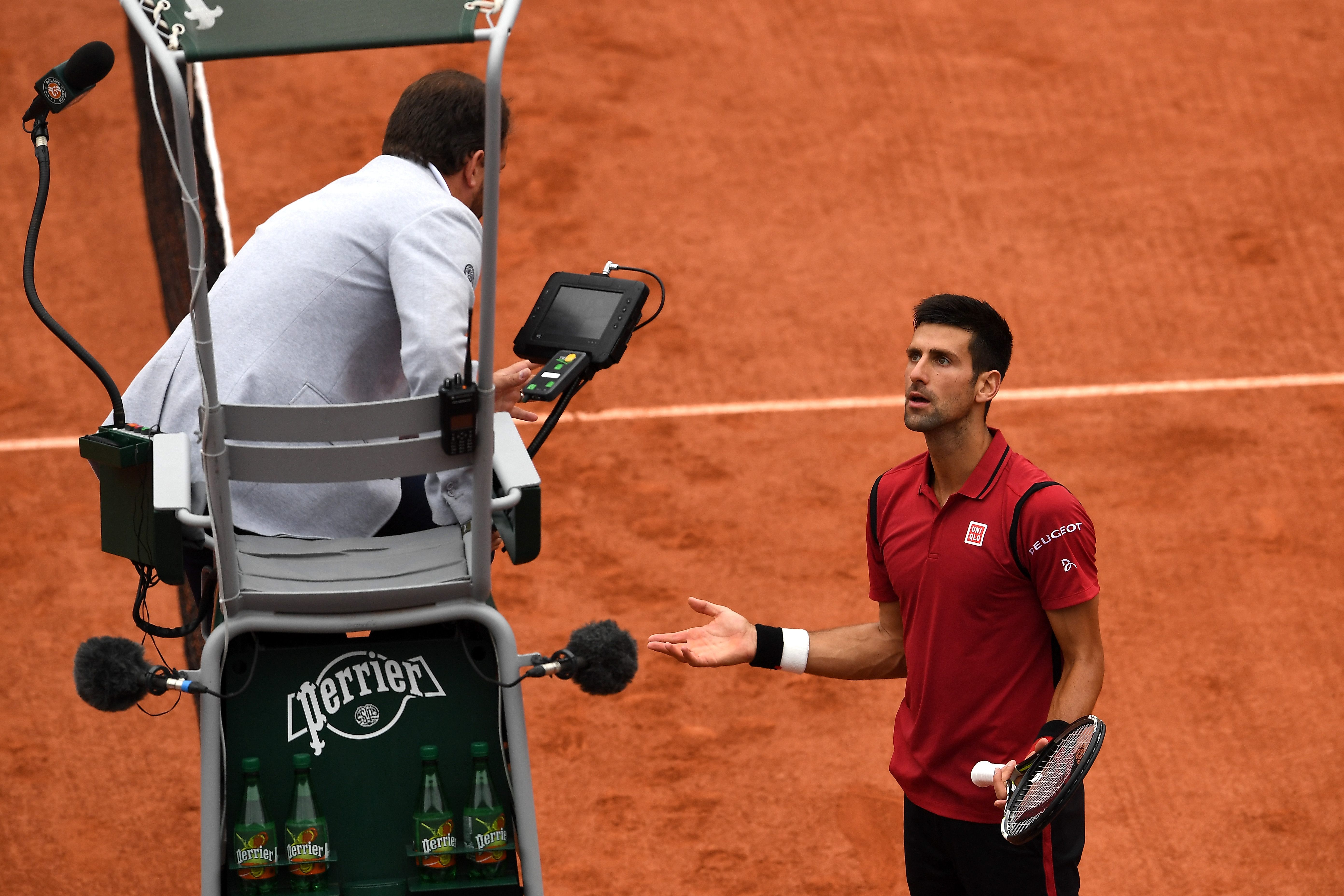
And in tennis, all of that is thrown out. No more árbitros, no more ampáyeres. Instead there’s an assortment of juezes: juez de línea, juez de silla, juez árbitro (the chair umpire), and the jefe de árbitros, the big boss, off-court, in charge of everything (the referee, if you’re keeping score in English). Juez means “judge” in Spanish, which means Spanish actually follows the English model: a complete jumble of terms.
Nobody I spoke to, including sports experts and linguists, has any idea why or how English and Spanish ended up so unpredictable and patternless. Most of the world has figured out that you really only need one term for sports officials.
I have a theory, one that can’t really be disproven, which makes it a pretty good theory, in my opinion. So many of the world’s most popular sports were invented, or at least codified, in the United States, Canada, and England—English-speaking countries. Baseball’s first official game was played in Hoboken, New Jersey, in 1846. Basketball was invented by a Canadian, but he was living in Massachusetts, and the first basketball game was played in Albany, New York, in 1892. American football, though an offspring of the rugby family, is, of course, American (and rugby itself, English in origin). Hockey was developed ad-hoc in Canada and the northern United States. Despite its French name, lacrosse is a Native American game codified in Canada. Cricket was invented in England. Basic concepts of soccer have been around for about two thousand years, but the rules of the sport were first laid down in England, including the specific stricture that the ball cannot be touched with the hands by any player besides the goalkeeper.

Because each of these sports was formalized in an English-speaking country, they were given a variety of names for their officials. But other countries, and thus other languages, had the benefit of seeing these popular team sports from the outside at first. They were introduced, not born—that’s my theory. It’s the gift of distance, which grants the ability to select the terminology that makes the most sense. You have a general name for official or judge, and you just apply that to whatever sport comes along.
This is an admittedly anglocentric view of things, and the major obstacle to the theory is Spanish, which simply doesn’t follow the pattern. But I think there’s something to this. Only in the place where the sport was invented does the specific, localized, kind of dumb terminology stick. Everywhere else? An umpire is a referee is a judge.


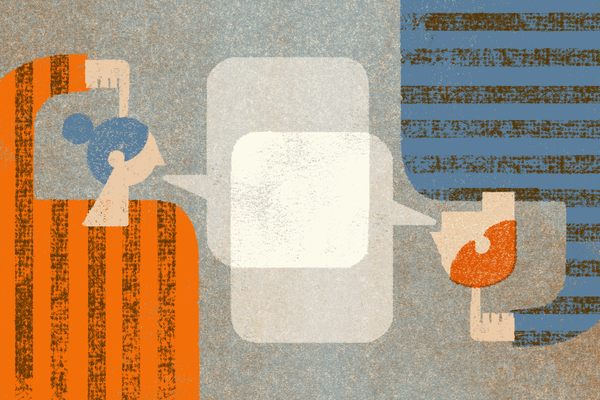




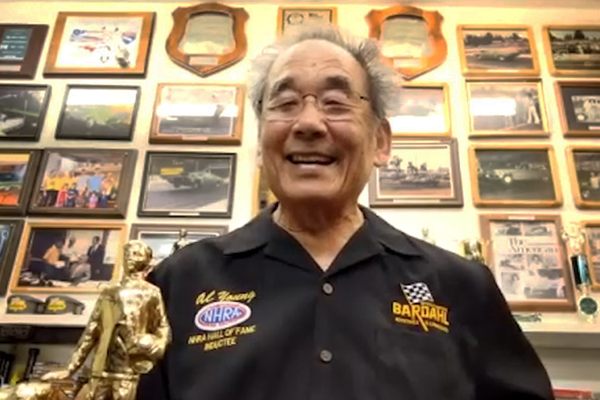



Follow us on Twitter to get the latest on the world's hidden wonders.
Like us on Facebook to get the latest on the world's hidden wonders.
Follow us on Twitter Like us on Facebook